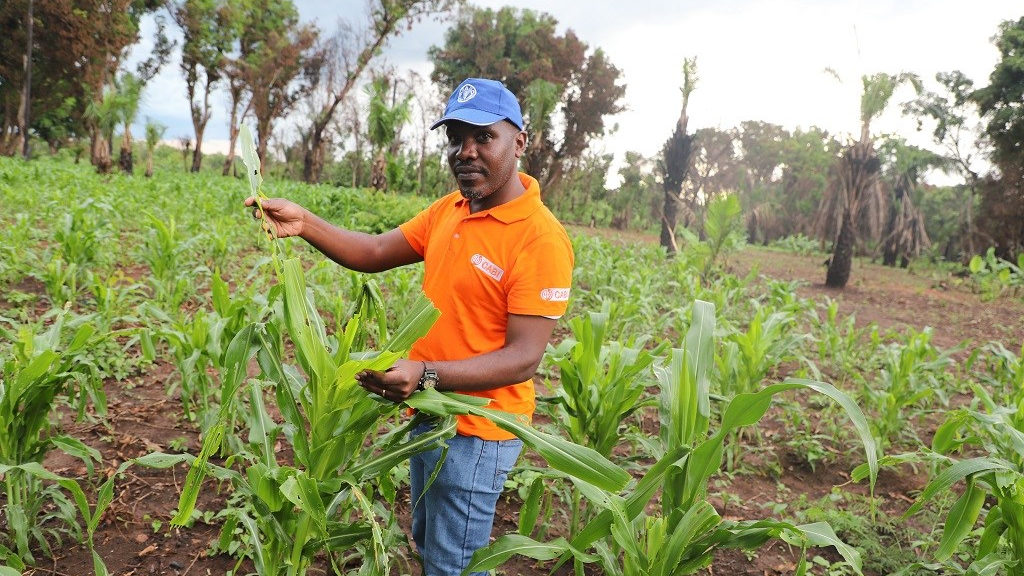
A new project in South Sudan is combatting the fall armyworm, an insect that can cause significant damage to crops, particularly maize. With more than half of South Sudan’s current population—nearly 6.2 million people—in need of life-saving food assistance, safeguarding food security where possible is essential. Launched in January 2019 as a partnership between CABI, a private sector partner – AgBiTech, CIMMYT, FAO, USAID, and the South Sudan Ministry of Agriculture and Food Security (MAFS), the project is piloting the use of a baculovirus biopesticide called Fawligen.
The project, under CABI’s Action on Invasives programme to work with communities in technology testing, is piloting the use of biopesticides for the sustainable management of fall armyworm. Biopesticides are generally considered to be a categorically lower risk option, that can be a highly effective alternative to fall armyworm management. Biopesticide products are based on fall armyworm pathogens (bacteria, baculoviruses and fungi). When used in conjunction with good crop management they can help to keep fall armyworm levels under control, reducing the need to apply other pesticides. The pilot roll out of Fawligen aims to reach 500 farmers (500 ha in total) in South Sudan.
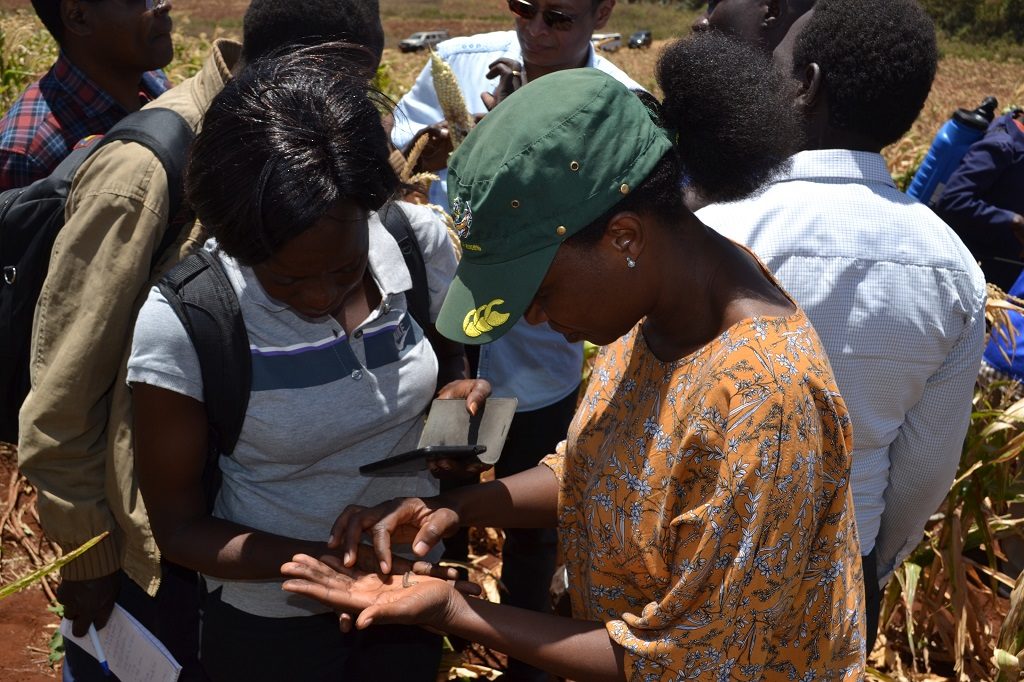
As part of the project, a specialized training course for agriculture extension officials, undertaken by CABI scientists, was held in Kenya in March 2019 on fall armyworm management using the biopesticide (baculovirus). At this training, 12 participants were trained as master trainers. During the training, participants learnt how to mix the product for application, how and when to apply/spray, plus weather conditions to consider before application. Also, a scouting exercise was conducted to equip participants with the practical skills to understand what to look out for and how to differentiate fall armyworm and its larval stages from other armyworms and stemborers. This included collection of other useful information such as phytotoxicity, non-target organisms or natural enemies.
The field demonstration, that started in May 2019, was launched at Yambio and was officiated by Gbudue State Minister of Agriculture, Hon. Gibson Bullen Wande. Nearly 400 litres of the product was purchased using USAID funding as part of the bigger Partnership for Resilience Recovery (PfRR) program being implemented in South Sudan.
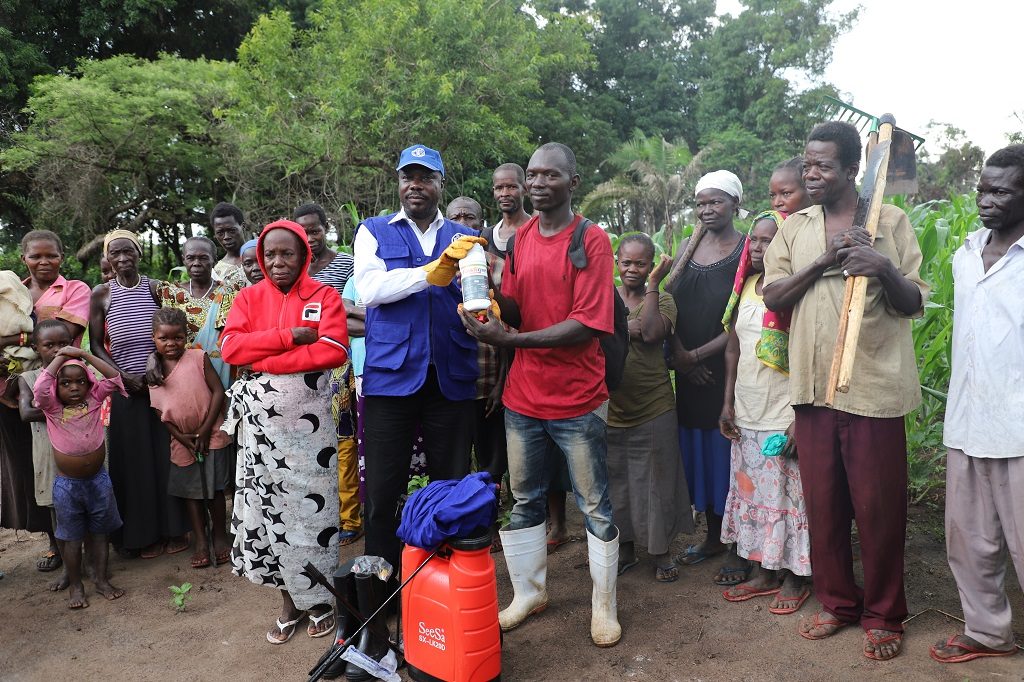
In his remarks, Hon. Wande said, “Fall armyworm is an emergency which needs to be addressed urgently, through combined efforts of the government, donors and communities, so that production can be increased to achieve the goal and objectives of the State Ministry of Agriculture – a war to conquer hunger in Gbudue State.” Further adding that he hoped that during the pilot, the product would yield results in controlling the fall armyworm in the State and other parts of the country including the other project sites at Magwi, Bor and Juba.
Originating from South America, fall armyworm is a highly destructive invasive pest. Since its arrival in West Africa in 2016, the voracious pest has swept across sub-Saharan Africa, causing huge losses to crops across the continent, particularly maize. Zerufa Matayo, a farmer and Assistant Chairlady for Nambiri Cooperative society was excited at the innovative technology being piloted at her farm, as the deadly insect had been damaging their crops since 2017. She reported that they have been trying some local methods like spraying ash, handing picking or scouting to protect their crops from the worms, but these had been ineffective.
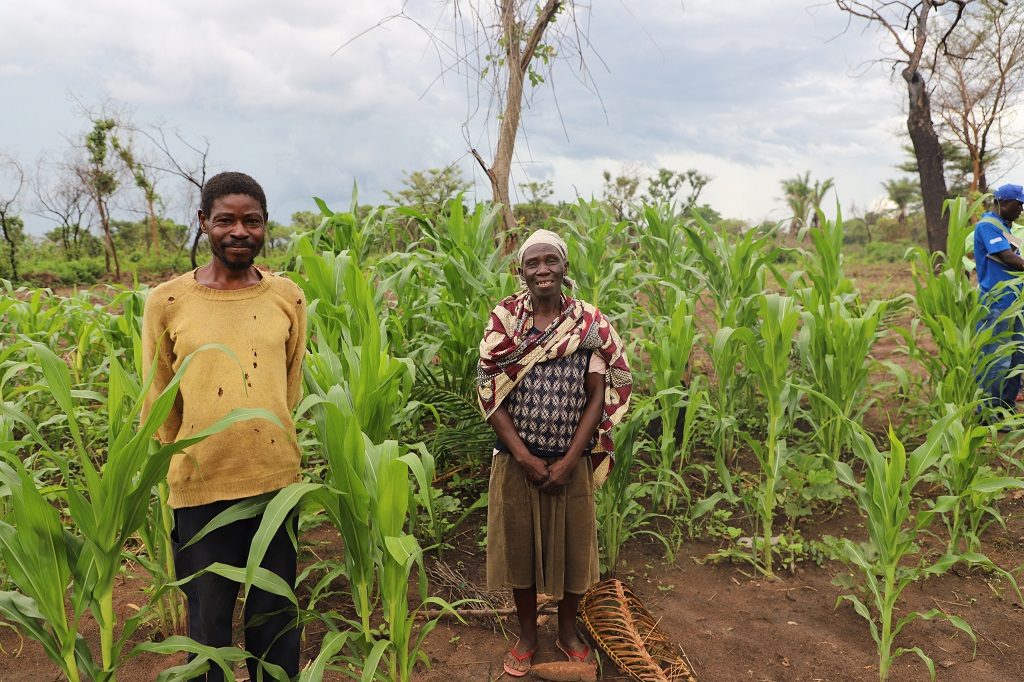
“We want to start the demonstration of using Fawligen right after emergence, to monitor the plants’ progress and the effect of the product on the crops right from planting to yield and harvest,” explains Morris Tabiano of FAO South Sudan. “The impact of the fall armyworm is most damaging to the plant once it germinates and can result in poor tasseling of the crop,” he added.
One litre pack of Fawligen can cover 30 feddans and unlike other pesticides, it is not poisonous to humans and other non-target insects. The agricultural officers who had been trained by CABI will be responsible for demonstrating to farmers how to mix and use the product, which is best applied in the evening. Fawligen does not kill the fall armyworm larvae immediately, taking around 2-5 days for the caterpillars to die.
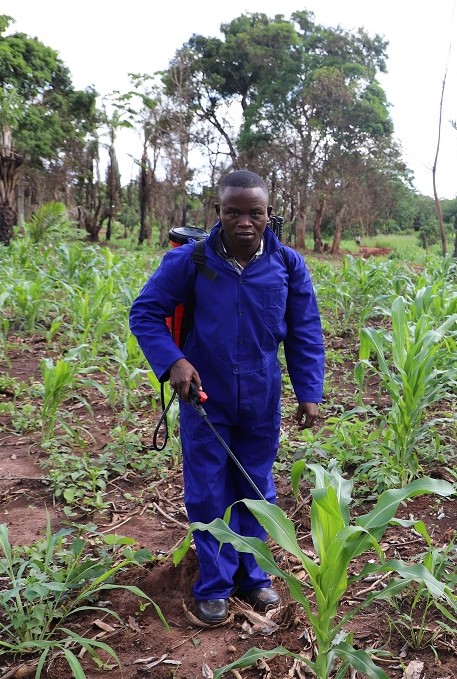
The partnership also includes Star Trust Organization (STO), a local organization in Gbudue State. “We are working closely with the farmers on the ground piloting the technology. We do daily assessments of the fall armyworm infestation and have been teaching farmers to use some natural methods to control fall armyworm like scouting, hand picking, and applying ash,” said Anthony Mori Edward, a crop specialist from STO, who further explained that, “the inclusion of the baculovirus within an integrated pest management approach is a welcome addition to the arsenal of tools that can be taken to the farmer.”
Dr. Ivan Rwomushana (pictured left), the lead Scientist from CABI in the project stated that the main aim for CABI and partners is to “develop and make available lower risk methods to manage damaging invasive crops pests, and in the long term reduce the over-reliance on synthetic pesticide use. Biological based approaches are key in this strategy. We are working with several private sector players with innovative methods for management of fall armyworm to get such solutions closer to the farmers who need them the most.”
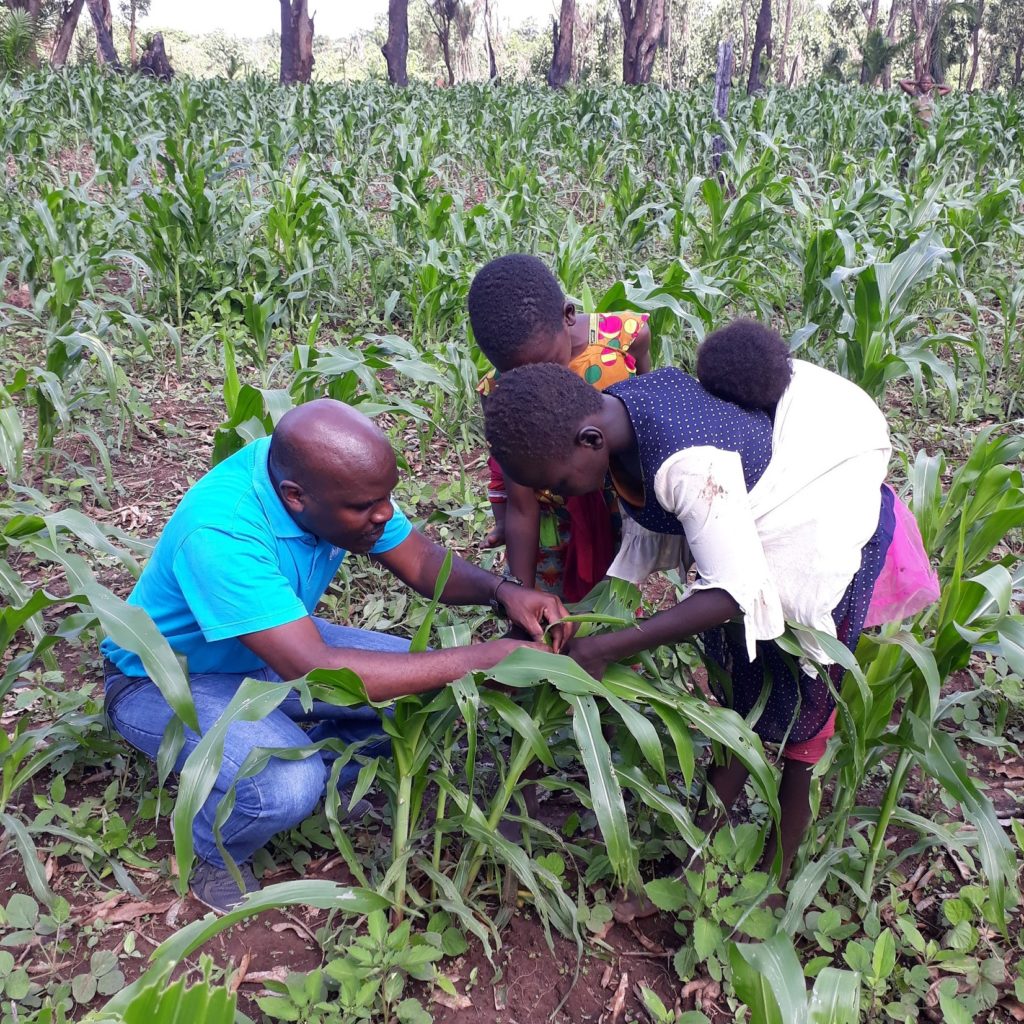
CABI will be supporting the farmers of South Sudan to learn about the lower risk methods for managing fall armyworm and how to use them within an IPM strategy for the management of this invasive pest.
Read more
6 Comments
Leave a Reply
Related News & Blogs
Training on mass production of entomopathogenic nematodes for biological control of invasive insect pests
A team of global experts in the production of biocontrol agent provided a practical training on the mass culture of entomopathogenic nematodes at the Biocontrol Agent Facility of Rwanda Agriculture and Animal Resource Development Board (RAB), writes Dr…
20 December 2023



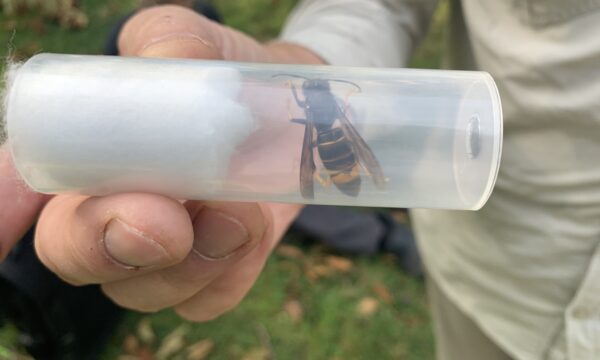

Grate work Dr. Ivan Keep it up.I hope this IPM will helped Small farmer in Sudan.
[…] have been used to manage the invasive fall armyworm control locust, but they’re not popular because they take time to kill the […]
[…] bioplaguicidas se han utilizado para controlar la langosta invasiva de control de la lombriz del ejército , pero no son populares porque toman […]
[…] have been used to manage the invasive fall armyworm control locust, but they’re not popular because they take time to kill the […]
[…] have been used to manage the invasive fall armyworm control locust, but they’re not popular because they take time to kill the […]
[…] have been used to manage the invasive fall armyworm control locust, but they’re not popular because they take time to kill the […]